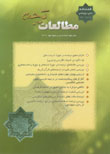Translation Quality Assessment: Assessing Concept or Construct?
Abstract
The practice of translation quality assessment is intimately tied to and framed by the theoretical assumptions and beliefs about quality translation and translation quality, regardless of whether they are explicitly articulated or tacitly fostered. Thinking through these theoretical quality assessment underpinnings can aid assessment researchers and practitioners to develop deeper understanding of translation quality and hence its assessment. While translation assessment literature abounds with traditional, narrow approach of forcing translation quality into artificially neat dichotomous or polytomous divisions, we tend to argue that this approach is unhelpful as it proved to be unable to engender a common shared platform of discourse among assessment theorists and practitioners, particularly when it comes to translation assessment in education. It also appears that the concept of translation quality has been confused for the construct of translation ability. Maintaining that quality impinges on quality performance which, itself, is underlied by the construct of translation ability, we argue that we need to turn the debate on and the quest for the hardly practically applicable polar divisions to more theoretical and empirical characterization of what quality generates from. As a step forward, we further suggest that translation researchers and testers address the relationship between translation competence and translation performance in the context of translation assessment research and practice.Published
2011-05-31
How to Cite
Rezvani, R., Riazi, M., & Sahragard, R. (2011). Translation Quality Assessment: Assessing Concept or Construct?. Iranian Journal of Translation Studies, 9(33). Retrieved from https://journal.translationstudies.ir/ts/article/view/468
Issue
Section
Academic Research Paper
License
Copyright Licensee: Iranian Journal of Translation Studies. This article is an open access article distributed under the terms and conditions of the Creative Commons Attribution–NonCommercial 4.0 International (CC BY-NC 4.0 license).





